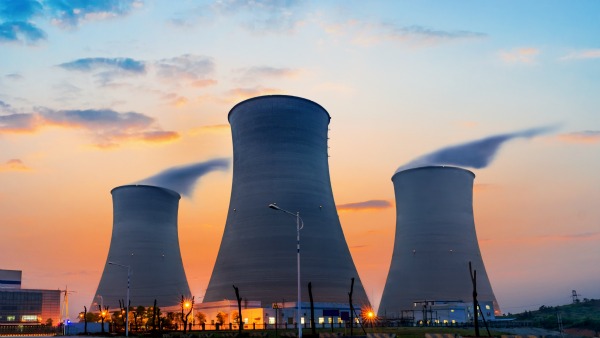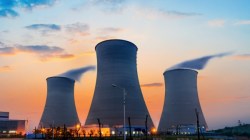Two recent movies, Pandora’s Promise and Switch, promote massive changes in the U.S. energy economy; both embrace nuclear power and point to France as the nuclear success story. The two-part company, however, on natural gas: Switch sees gas plus nuclear as the major energy sources of the future, but Pandora gives gas no significant role.
These are “good-bad” movies. They effectively raise the right issues but crash on flawed conclusions. Pandora correctly places energy at the heart of the most important environmental issue: climate change. Switch nods to the importance of climate change, but its forte lies in portraying the energy economy as a whole.
Together the two films rivet attention on the role of the energy industries in climate change. With superb photography, they effectively seduce the viewer. Make no mistake about it: These films engage and persuade. That’s precisely why the nonsense of their conclusions is so deadly.
 Pandora focuses on the betrayal, conversion, and salvation of a handful of environmental activists, all of whom had once marched against nuclear power but who now think they had been misled; they now see their former adversary as the only hope to forestall climate change. The film steps into a vacuum, because the American environmental movement has not truly engaged with the problems of energy.
Pandora focuses on the betrayal, conversion, and salvation of a handful of environmental activists, all of whom had once marched against nuclear power but who now think they had been misled; they now see their former adversary as the only hope to forestall climate change. The film steps into a vacuum, because the American environmental movement has not truly engaged with the problems of energy.
Yes, campaigns against nuclear power, coal, and fracking for natural gas have been prominent themes. At the same time, the environmental movement has also launched protests against solar installations and wind turbines. Good reasons supported all these campaigns, but they focused on single issues, ignored connections between issues, and too often trumpeted only what not to do. Such campaigns failed to explain the challenges of building a sustainable energy economy.
Fossil fuels have underpinned the entire industrial revolution for the last 300 years, and to this day they provide the vast majority of the world’s energy. Replacing them is the most difficult challenge humanity faces, and success will not come from single-issue campaigns about what we don’t like.
Pandora’s failure lies in its startlingly simplistic proposal to replace fossil fuels with nuclear power. For example, the film claims that the Integral Fast Reactor (IFR) provides a key route to safe nuclear power. These facts, however, are important: 1) The IFR’s prototype, the Experimental Breeder Reactor-II, was small-scale when the program ended; and 2) No IFR plant was ever built. Accordingly, data on reliability, safety, and costs don’t exist. Nuclear power has a long history of bedevilment in scaling up from prototypes, and Pandora’s reliance on untested technology invites disbelief.
Despite the unknowns, Pandora wants a massive turn to new types of nuclear power plants. The world’s power plants currently produce about 5,000 gigawatts (1 gigawatt = 1 billion watts). Replacing this fleet with new plants of 1 gigawatt each — the common commercial size — means building 5,000 new nuclear plants, over 10 times the current number. Existing experience indicates that $6 billion may be a lower cost estimate to build such plants, so the total cost would be about $30 trillion, possibly higher.
Is such a sum even conceivable? Maybe yes, but would such a massive program be the best use of $30 trillion? At the same time, Pandora fails to seriously address the promises and challenges of developing major roles for renewable energy. Such a partial assessment doesn’t cut it for spending $30 trillion.
 Switch presents an entirely different storyline. A respected petroleum geologist takes us on an engaging worldwide venture to learn about all the energy industries (renewable and otherwise), their interconnections, and the importance of efficiency. It acknowledges the importance of climate change and correctly lays out the scope and interchangeability of energy sources. At this level Switch is a remarkable success.
Switch presents an entirely different storyline. A respected petroleum geologist takes us on an engaging worldwide venture to learn about all the energy industries (renewable and otherwise), their interconnections, and the importance of efficiency. It acknowledges the importance of climate change and correctly lays out the scope and interchangeability of energy sources. At this level Switch is a remarkable success.
Like Pandora, however, Switch fails to connect the dots at the end of its engaging quest. It concludes with three recommendations: 1) Use all energy more efficiently; 2) Ramp up natural gas and nuclear to replace coal and oil in 50 years; and 3) Increase wind and solar deployment in significant but rather modest ways. Point No. 2 is where the bulk of expenditures will occur, but the film remains silent about the details.
According to the film, the natural gas will come from fracking and an increased global trade in liquefied natural gas (LNG). Switch briefly considers the problems around fracking but implicitly accepts its risks and drawbacks. It embraces nuclear, presumably the conventional light water reactors currently used, but makes no mention of costs. It notes the need to be careful about safety but essentially ignores the catastrophic implications of Chernobyl and Fukushima.
Switch fails to convince for two major reasons. First, although it acknowledges the seriousness of climate change, it projects intensive use of oil and coal for 50 more years followed by intensive use of gas. This is not a solution for climate change. Second, Switch suggests constructing around 200 new nuclear power plants in the United States alone, twice the number currently working. Such an investment will cost $1.2 trillion. Like Pandora, however, Switch fails to deliver a comprehensive assessment of renewable energy.
Both Pandora and Switch seductively engage and persuade. Yet they are both fatally flawed. Both dismiss a serious engagement with renewable energy without a persuasive engineering or scientific analysis. Both slide too facilely into highly risky technologies (nuclear and gas), dismiss the risks, fail to discuss costs, and offer no analysis of opportunity costs (what other things could we do with the money?). Both rely on a breathtakingly narrow spectrum of opinion about energy and leave other equally qualified experts by the wayside.
Both Pandora and Switch end up as biased and not objective, despite their strenuous assertions to the contrary. The “good-good” film on energy remains to be made.




